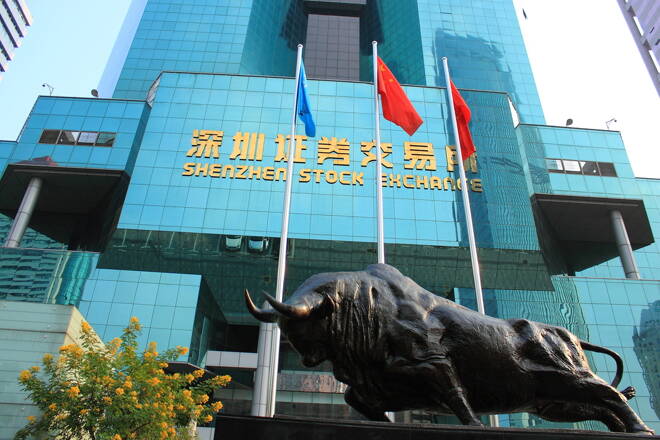Advertisement
Advertisement
Most Asia-Pacific Stock Markets Finish Lower as China PPI Rises More than Expected
By:
China’s factory gate prices rose at their fastest annual pace since July 2018 in March, as growth continued to gather momentum.
The major Asia-Pacific stock indexes settled mostly lower on Friday despite a strong performance by U.S. stocks. The selling pressure was fueled as official data released Friday showed Chinese consumer and producer inflation rising in March as compared with a year ago.
Mainland Chinese stocks closed lower on the news, while shares in Hong Kong declined despite a surge in shares of Tencent-backed financial technology firm Linklogis. Stocks in Japan bucked the overall downward trend, while South Korean and Australian benchmarks retreated.
In the cash market on Friday, Japan’s Nikkei Index settled at 29768.06, up 59.08 or +0.20%. Hong Kong’s Hang Send Index finished at 28698.80, down 309.27 or -1.07% and South Korea’s KOSPI Index closed at 3131.88, down 11.38 or -0.36%.
In China, the Shanghai Index settled at 3450.68, down 31.88 or -0.92% and in Australia, the S&P/ASX 200 Index finished at 6995.20, down 3.60 or -0.05%.
China’s March Factory Prices Grow at Fastest Pace Since July 2018
China’s factory gate prices rose at their fastest annual pace since July 2018 in March, official data showed on Friday, as growth in the world’s second-largest economy continued to gather momentum.
China’s producer price index (PPI) rose 4.4% in annual terms, the National Bureau of Statistics said in a statement. This compared with a medium forecast for a 3.5% rise in a Reuters poll of analysts and a 1.7% rise in February.
The inflation data is the latest indicator to point to robust economic growth in the January-March quarter. Data the previous week showed China’s manufacturing activity expanded at the quickest pace in three months in March as factories ramped up production to keep up with improving global demand.
In other news, China’s consumer price index (CPI) rose 0.4% from a year earlier in March, the statistics bureau said in a separate statement, compared with a median forecast for a 0.3% rise in a Reuters poll and a 0.2% decline in February.
South Korea Stocks Fall on Surging COVID-19 Cases, Weak US Data
South Korean shares ended lower on Friday, snapping a six-day winning streak, as worries over a surge in local coronavirus infections and downbeat U.S. labor data dampened investor sentiment.
A U.S. jobless claims report showed a second straight weekly increase on Thursday, conflicting with earlier payrolls and job vacancies data that had buoyed investor confidence of a quick economic rebound.
Further weighing on sentiment was South Korea’s 671 new coronavirus cases, following 700 a day earlier in its highest daily tally since early January, as it fanned fears over a potential fourth wave of outbreaks.
For a look at all of today’s economic events, check out our economic calendar.
About the Author
James Hyerczykauthor
James Hyerczyk is a U.S. based seasoned technical analyst and educator with over 40 years of experience in market analysis and trading, specializing in chart patterns and price movement. He is the author of two books on technical analysis and has a background in both futures and stock markets.
Advertisement
